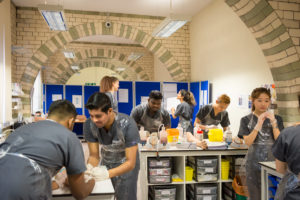About this course
This programme has been developed to enable healthcare and allied professionals, and intercalating medical students, to engage with both theoretical and practice elements in the study of Palliative and End of Life Care at master's Level.
Introduction
This course will encourage you to consider how good practice can be achieved across a number of different practice settings and apply learning to your own practice area. This programme is rooted in the core elements of good practice, engaging clinical, academic, organisational, political and international perspectives on the current and future challenges for Palliative and End of Life Care.
You will be prepared and provided with the knowledge, skills and attitudes to develop into, and engage in senior clinical and/or leadership roles within regional, national and international contexts.
Your learning experiences will promote improvements in the care delivered to patients and families, enhance support provided to colleagues, enable effective team working within and across professions and sectors, and highlight the pressures of organisation structures and resources on service delivery.
Work-based learning placements within specialist palliative care settings will provide you with the opportunity to contextualise learning within the programme. You will also undertake advanced communication skills training, delivered by internationally renowned experts, and is designed to develop and enhance skills to address challenges frequently encountered in practice.
If you wish, you can apply to study a PGCert instead of an MSc, in which case you’ll complete the 60 credits in semester one as your whole programme. Several of our modules are also available as individual Continued Professional Development (CPD) courses, for the improvement of your knowledge and skills within your career.
The programme is led by an academic lead and a clinical lead from the School, supported by input from specialist clinicians, senior academics and an international faculty.
Who is this course for?
The course is designed for all healthcare and allied professionals who support patients with life limiting illness (gerontology, respiratory, oncology, cardiology), including doctors, nurses, and physiotherapists, you will develop critical understanding of the evidence that underpins the practice and development of Palliative and End of Life Care services.










